Easily Distracted? 9 Powerful Weapons to Regain Your Focus
Easily distracted? Discover 9 powerful strategies to conquer distractions, and practical techniques to focus better and achieve your goals.
Today I sat down to write this article, but immediately paused to watch a reel on Instagram. Then I returned to this article but switched tabs to finish another piece I'm working on. Then I switched back, but stopped to get my laundry ... does this sound familiar? If yes, you and I may have the same problem of getting easily distracted while doing important work.
With modern life pulling us this way and that, it's become only too easy to be unfocused and let other things creep in while you're in work mode. It may even seem harmless – you still get your work done (well, mostly), just a little (or a lot) later than you were supposed to.
But distractability is a modern epidemic. Believe it or not, it's actively making you dumber. In a study by Dr Glenn Wilson from London's Institute of Psychiatry, on the effects of distractions on cognitive functions, it was found that persistent interruptions and distractions at work resulted in a 10-point drop in IQ.
Your poor brain is fighting an unfair battle. Silicon Valley's brightest minds work tirelessly to keep you scrolling, clicking, and consuming. The average person now touches their phone 2,617 times daily. Your email pings every few minutes. Your colleague just sent "quick question" messages that are neither quick nor questions.
Left unchecked, distractibility can become chronic, making it difficult to get anything done at all and leaving you with nothing but broken dreams and a huge unfinished to-do list.
This guide arms you with battle-tested weapons to reclaim your attention in a world designed to fragment it.
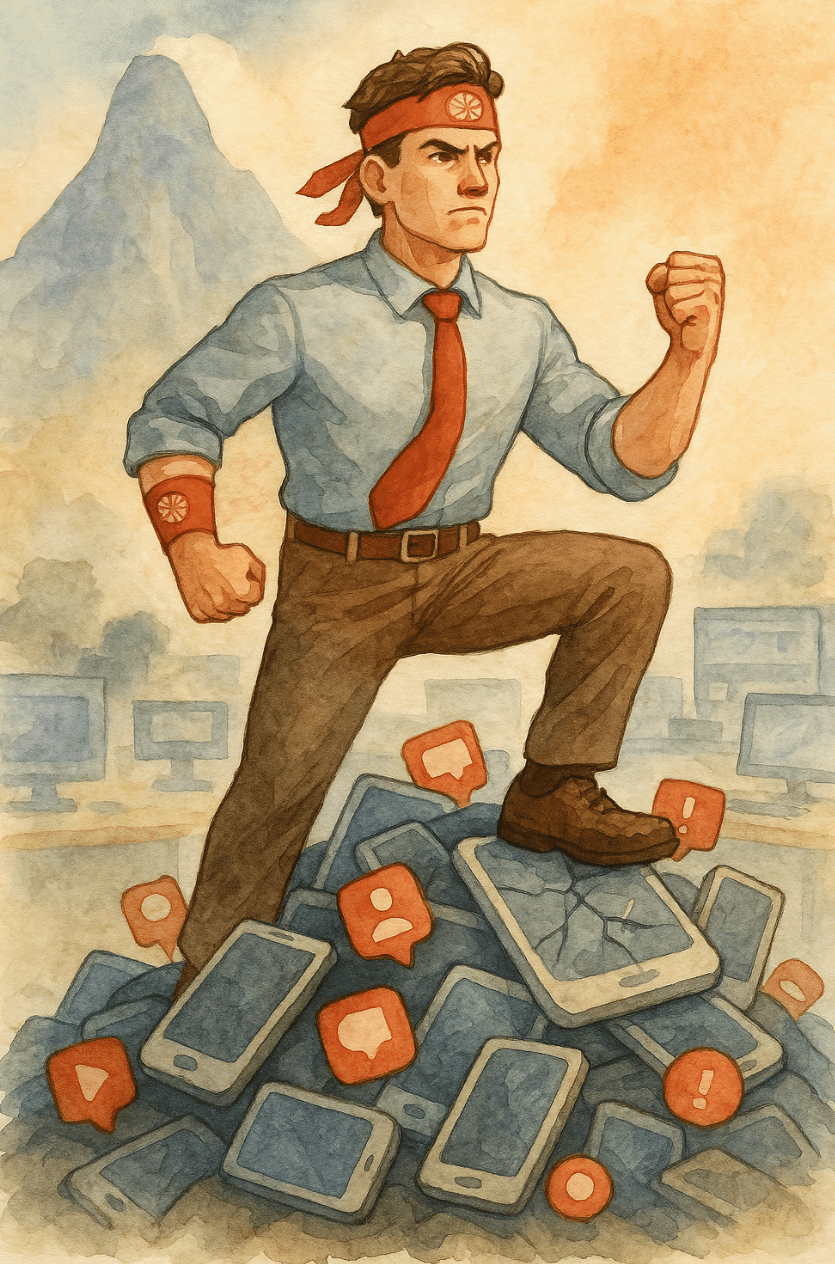
What it Means to be Easily Distracted
Distractibility has a few different forms. For me, it's a tendency to let other activities interrupt me when I sit down to do one task. For you, it can mean just giving in to the noise of the environment – your coworkers chatting, the sounds of the television, or the general humdrum of life – and not focusing on what's in front of you. Some people are also distracted by their thoughts, which stops them from paying attention to their immediate tasks.
All these forms have different causes behind them:
Common Causes of Distractibility
Stress and Anxiety
When you have the pressure of a deadline looming over you, or perhaps anxiety over completing a difficult task, you may find it hard to stay focused. You know the feeling—your stomach tightens, your thoughts race, and suddenly that important task morphs into a monster lurking in the corner of your brain. Stress and anxiety in your personal life can also creep into work, and claim your time. That presentation due tomorrow? It's now competing with worries about your argument with your partner or that weird noise your car started making.
Overstimulation
Being in an environment where there is too much happening—phones ringing, people talking loudly, television on—can get overwhelming and cause your senses to fight for your attention.
The office chatter transforms into a persistent buzz that drills into your concentration. Your phone pings, your email chimes, and the person three desks over unwraps the loudest sandwich in the history of sandwiches.
In this sensory hurricane, your brain doesn't know where to land. It jumps from stimulus to stimulus—never settling, always reactive, and completely exhausted by the end of it all.
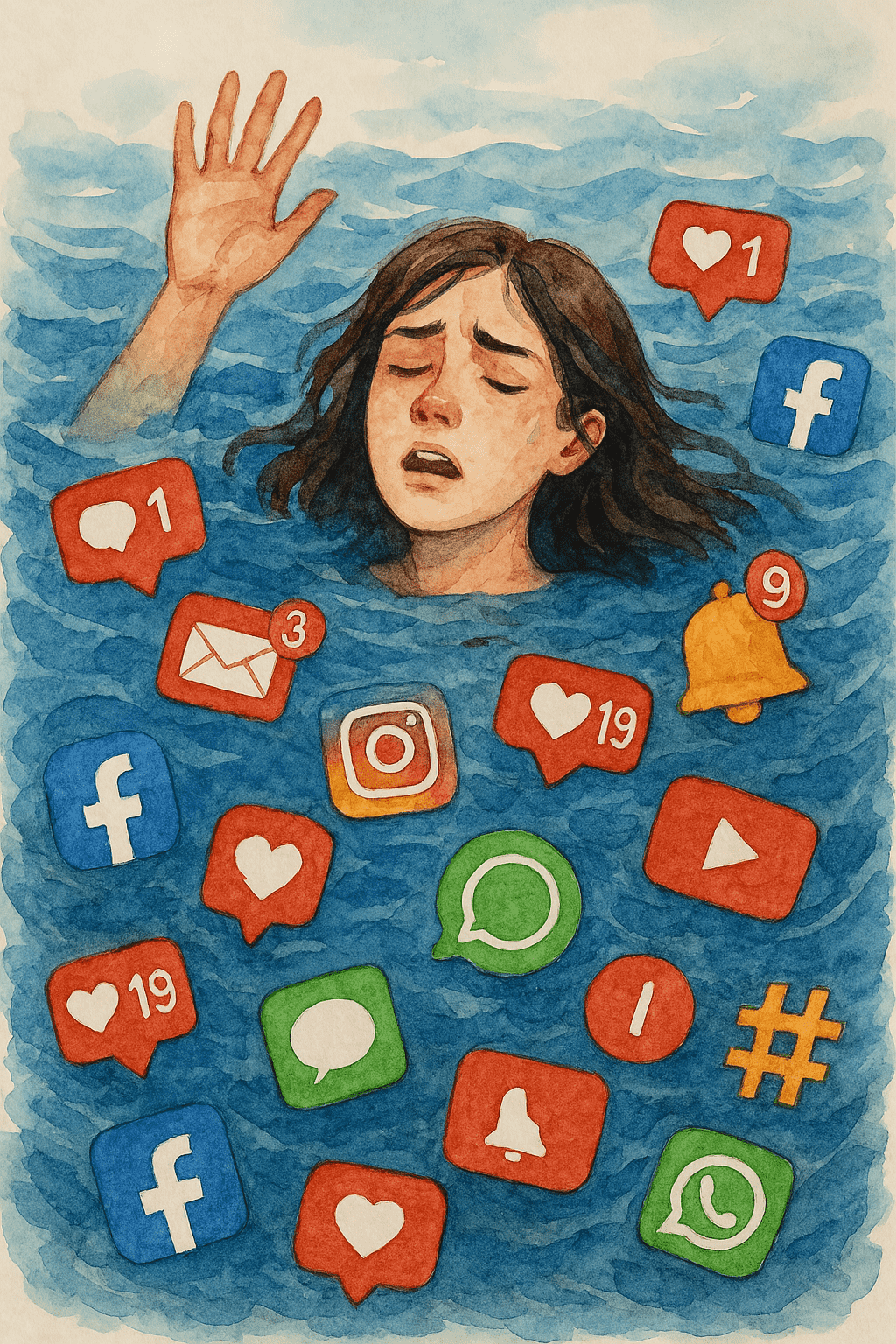
Hectic Work Environment
Like noise, the sight of a messy, disorganized, or uncomfortable work environment can be distracting and force you to focus on how to fix your workplace rather than on getting the priority tasks done. When your workspace resembles the aftermath of a small explosion, your mind splits focus between "I should really clean this up" and "But I have three deadlines today." The constant visual noise drains your concentration while you struggle to prioritize between organizing your environment and tackling your actual responsibilities.
Attention deficit hyperactivity disorder
Easy distractibility can be a sign of ADHD, which impairs your executive function and makes it hard to complete tasks.
ADHD rewires executive function—the brain's task manager—making sustained focus difficult. Your brain chases novelty and stimulation, jumping between tasks with an almost magnetic pull toward anything new or different.
But a note of caution: getting easily distracted is not a sure sign of ADHD, which is a recognized medical condition and must only be confirmed by a licenced healthcare professional.
Physical and mental health issues
Physical pain doesn't politely wait its turn—it screams for attention NOW. That migraine doesn't care about your project deadline. The persistent ache in your wrist makes each keystroke a tiny battle. Your body's distress signals override everything else, transforming what should be a simple task into an exercise in endurance.
Mental health challenges can be even more insidious. Anxiety, for example, constantly whispers "what if" scenarios that your brain can't help but follow. These distractions are powerful currents pulling you away from shore.
You can't outwork physical pain or mental distress. Before you can focus on conquering your to-do list, you need to address these fundamental needs. Your health isn't just another task competing for attention—it's the foundation that makes all other focus possible.
Strategies for Reducing Distraction and Improving Focus
Get Accountability
There's nothing like having someone watch you to keep you stay focused! By being held accountable, you commit to finishing a certain task at a certain point in time, and when you know someone or something is counting on you to follow through, you're much less likely to give in to distractions that will keep you from missing the deadline. Luckily, nowadays there are many accountability partner apps to keep you on track. (We recommend Boss as a Service – we're biased, of course!)

Identify your Distraction Triggers
Figure out what gets you easily distracted – is it when you have your phone always around and it's constantly buzzing with notifications? Or, perhaps you have too many tabs open with your browser begging for mercy? Or is it that Mr. Chatty Coworker always shows up to tell you about his weekend just when you've finally managed to get into flow state?
Whatever your potential distractions are, make an effort to recognize them.
Keep a "distraction journal" for a day — every time you lose focus, jot down what pulled you away. Patterns will emerge. Maybe you can focus beautifully until 2 PM, when your energy crashes. Or perhaps you maintain laser focus when working on creative tasks but get distracted while trying to do administrative work.
Once you've identified your specific distraction triggers, it's easier to build a plan to avoid them.
Practice Mindfulness to Stay in the Present Moment
Our brains evolved to scan constantly for new information, potential threats, and shiny objects. Mindfulness is the practice of gently training our brain to stay in one spot.
Mindfulness techniques, such as meditation or deep breathing, help you stay present and stay focused in the moment. Regular meditation builds the mental muscle that notices when your thoughts have wandered off and guides them back home. Even five minutes daily strengthens your focus immune system. The goal isn't to achieve some mystical, monk-like state of perfect concentration — it's to reduce the time between getting easily distracted and noticing you're distracted.
It's also helpful as a stress response and helps you tune out all the distracting stimuli in your regular work environment.
Simple breathing techniques can become your emergency focus reset button during the workday. When overwhelm hits or distractions multiply, three deep breaths with closed eyes can clear the mental clutter. This isn't spiritual woo-woo—it's practical neuroscience, triggering your parasympathetic nervous system to calm the internal chaos.
With practice, you'll develop an internal "distraction radar" that alerts you the moment your mind begins to drift, allowing you to gently redirect without judgment.
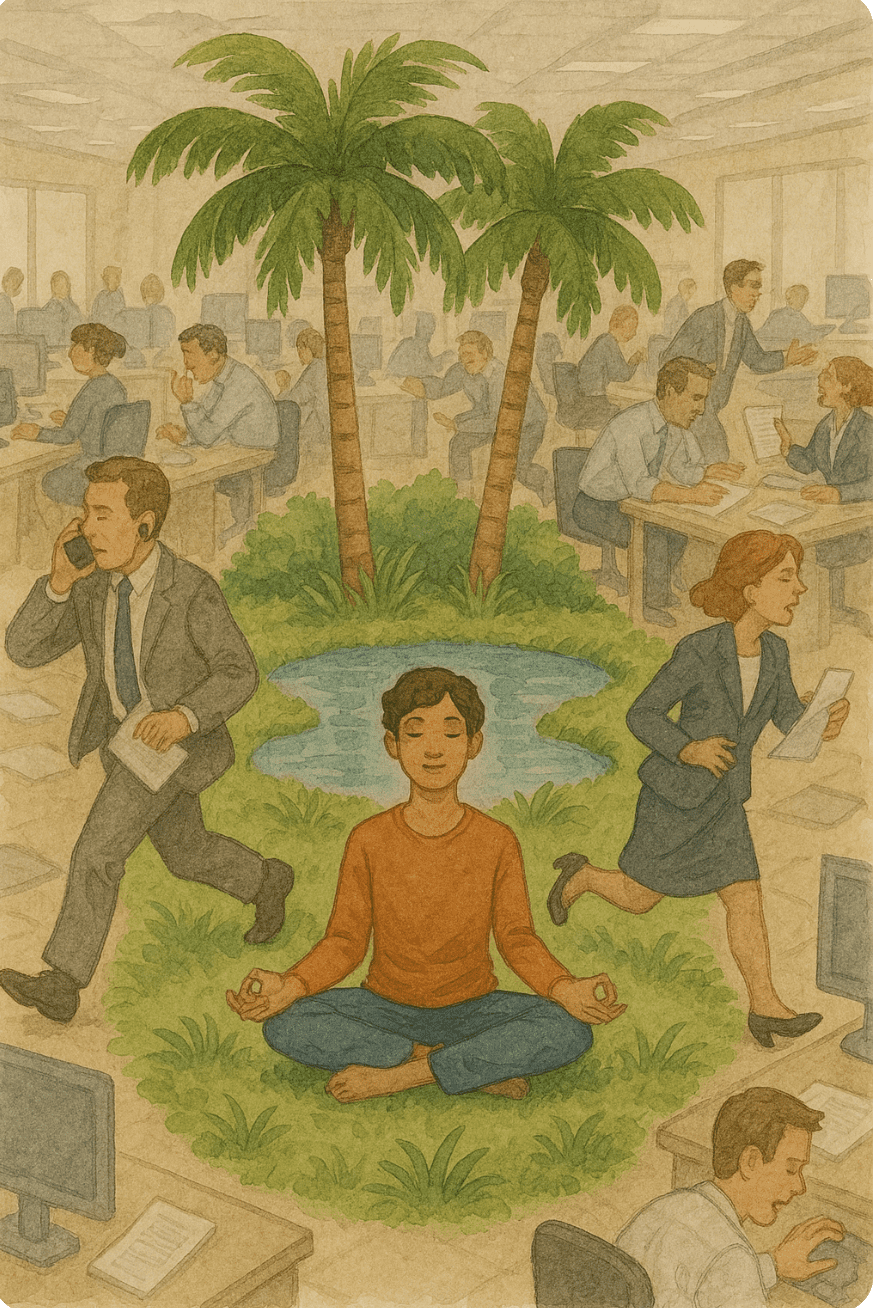
Break Down and Prioritize your Goals
Big, complicated goals can disrupt your focus. Your brain looks at "Redesign entire website" and immediately searches for something more manageable to think about (hello, Instagram).
Instead, take that intimidating, big, goal and break it into tiny, conquerable pieces. Don't just write "finish project"—break it down into microscopic steps that take 30 minutes or less. "Choose color palette," "Write intro paragraph," "Create header image."
These bite-sized tasks create constant wins throughout your day. Each completed micro-goal releases a tiny hit of dopamine, keeping your motivation engine running. Plus, you'll always know exactly what to do next—eliminating that dangerous moment of "What now?" when distractions tend to pounce.
Want some help in breaking down your goals? Try our helpful tool Crunch here!
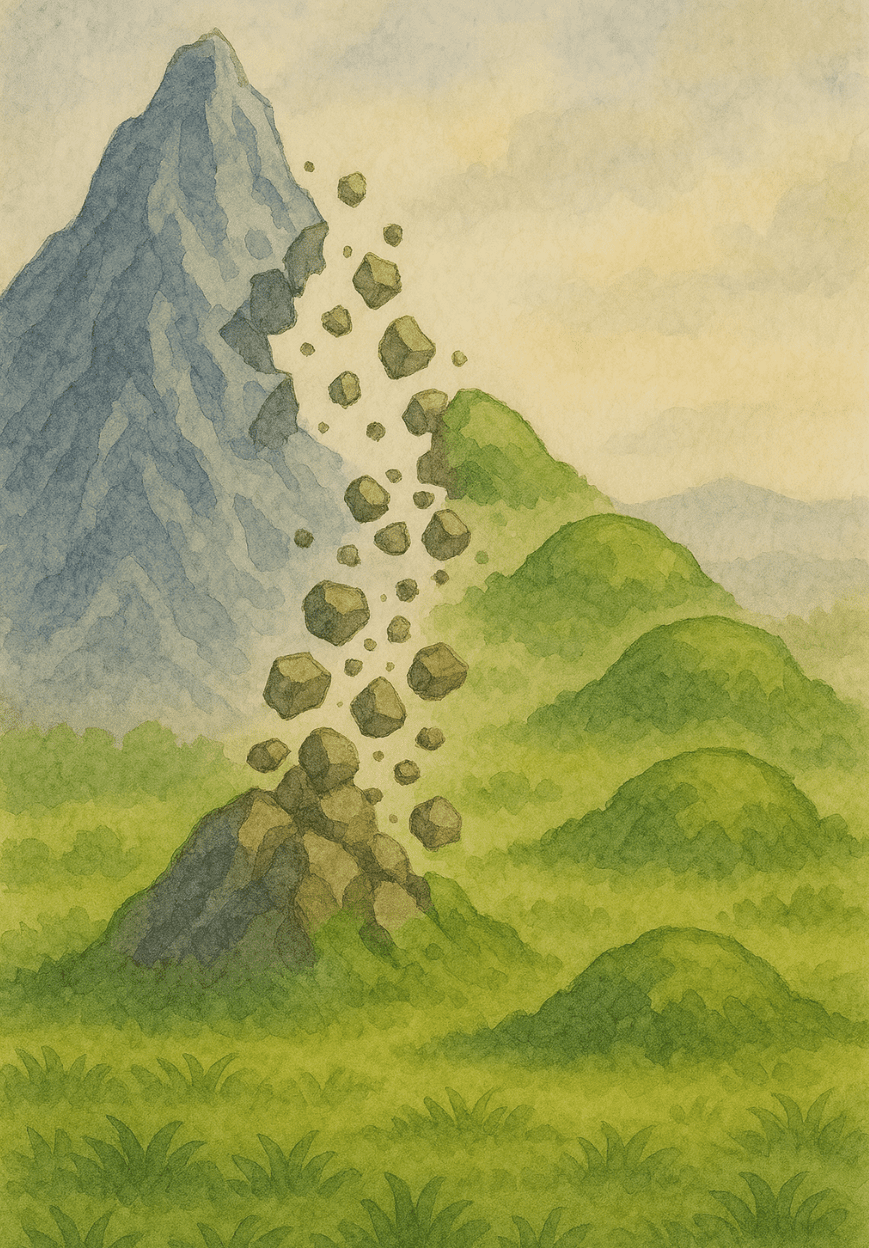
Second – prioritize your goals. Use the classic urgent/important matrix to sort your micro-goals. Handle the urgent AND important tasks first, schedule time for important but not urgent work, delegate or batch process the urgent but unimportant stuff, and ruthlessly eliminate or minimize the neither urgent nor important time-wasters.
Work on Task and Time Management
Once you've got your goals ready, create a work schedule that leaves little room for distraction.
Time blocking is your foundation—assign specific blocks for focused work on single tasks rather than vague intentions. Be realistic about duration; most people wildly overestimate what they can accomplish in a day.
Batch similar tasks together to leverage cognitive momentum. Your brain needs time to context-switch between different types of work. Jumping from writing to data analysis to phone calls creates mental friction that exhaustion loves to exploit.
Eliminate Distractions
Knowledge is only power when you act on it. Once you've identified your personal distraction triggers, it's time for the satisfying work of elimination.
Once you know your triggers, take active steps to get rid of them – mute your social media notifications, close unnecessary tabs, keep your phone away, and find a quiet, clean place to work in. (Studies show that even the mere presence of your phone reduces cognitive capacity, even when it's powered off!) The fewer temptations present around you, the less likely you are to lose focus.
Looking for a cool way to keep your browser tab-free? Try our tool Dopanope!
Optimize your Work Environment
That cluttered desk isn't just an eyesore—it's actively sabotaging your concentration. Your physical environment shapes your mental environment more than you realize.
Make this weekend your "Extreme Workspace Makeover" project. Clear everything off your desk, then be ruthlessly selective about what earns its way back. Each item should serve your focus, not fight against it.
Strategically add elements that fuel your focus engine. Bring nature indoors with plants that don't just look pretty but actually improve air quality and reduce stress. Consider a "motivation wall" with visual reminders of your goals or inspirational imagery that reconnects you with your purpose when your focus falters.
When your environment is optimized for your specific focus needs, staying on task becomes dramatically easier. Your workspace should silently communicate: "This is where important work happens."
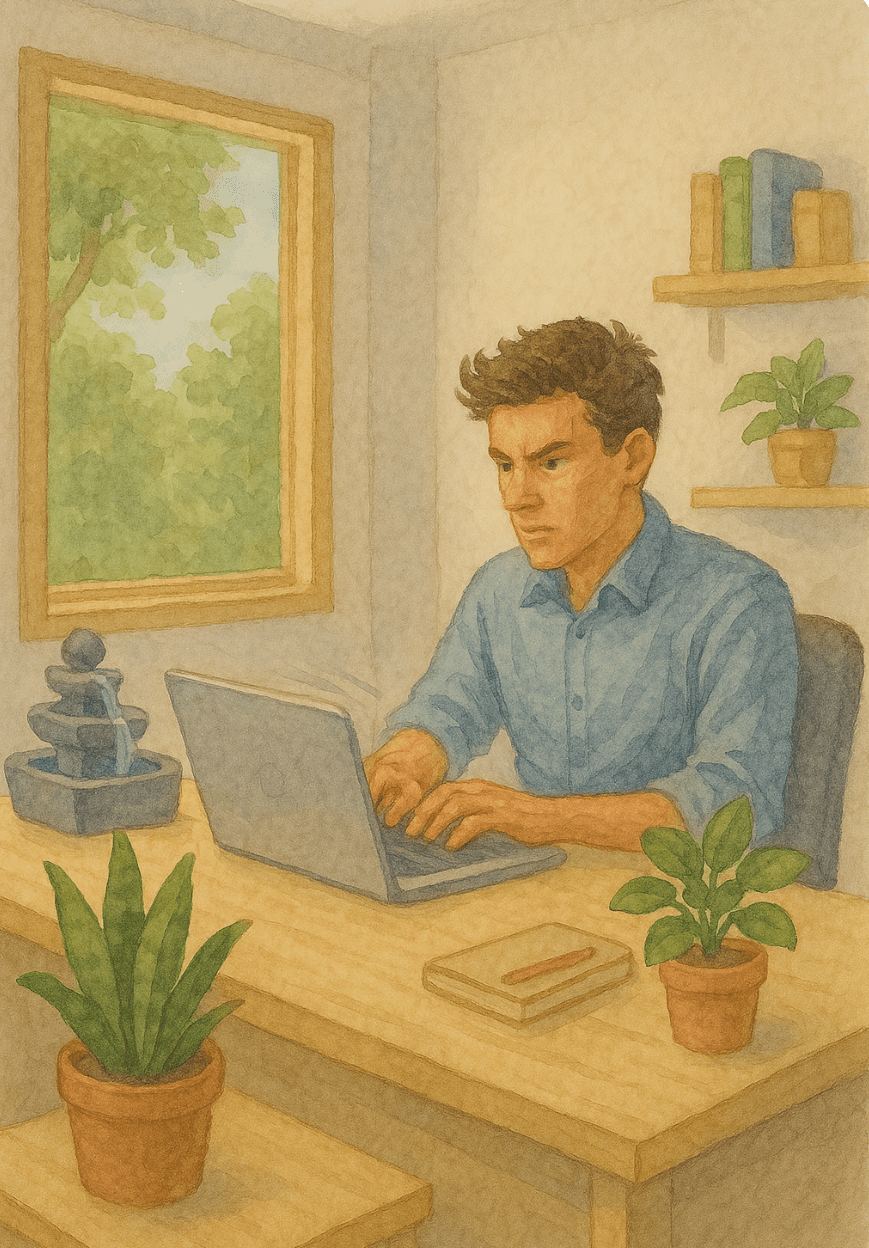
Find your Most Productive Time
Your brain isn't equally ready for focused work at all hours. Your cognitive abilities rise and fall in predictable waves throughout the day, governed by your unique biological rhythms. The trick is syncing your most demanding and important tasks with your natural peaks.
Are you a gleeful early bird, ready to tackle complex problems at dawn when the rest of us are still fumbling for coffee? Or perhaps you're a night owl whose creative genius only activates after sunset? Neither is better—they're just different chronotypes.
The only wrong approach is ignoring your biology. Track your energy and focus levels for a week at different hours. Patterns will emerge, revealing your personal "cognitive prime time."
Once identified, guard these golden hours like Smaug guarding his golden treasure! Schedule your most challenging, focus-intensive work during your peak periods. Save administrative tasks, emails, and low-cognitive work for your natural valleys.
Consider experimenting with "monk mode"—extended periods of deep, distraction-free work during your prime hours. Disconnect completely from communication channels, set clear boundaries with colleagues and family, and dive into single-task focus with monastic discipline. Even short monk mode sessions can yield extraordinary results when aligned with your natural cognitive peaks.
Work on your Mental and Physical Health Issues
If your distractibility is a cause of larger physical and mental health issues, like ADHD, then don't delay getting the help you need! Contact a physical or mental health professional to work on the underlying problem, and distractibility will resolve itself as you get better.
How to Improve your Focus with BaaS
At Boss as a Service, we are all about staying focused and eliminating distractions. Our human Bosses are here to help you set goals, optimize your work schedule and identify anything that can hold you back from meeting your targets. We also have tons of productivity tips and techniques to help you stay on track!
Whether you have big professional goals to achieve or small personal habits you want to establish, Boss as a Service can help you cultivate the focus you need to work on all of them!
Final Thoughts
The dividends of improved focus extend far beyond productivity. When you reclaim your attention, you reclaim agency over your life. Deep work becomes possible again. Creative insights – which only emerge in the space between distractions – return. The constant background anxiety of scattered attention fades.
In a world that profits from your distraction, choosing focus is revolutionary. It's declaring that your time, your work, and your attention are too valuable to surrender to the highest bidder or the loudest notification.
Your focus journey starts with a single intentional moment of attention. Where will you direct yours first?
Enjoyed this article? Check out some more about focus and distraction here: